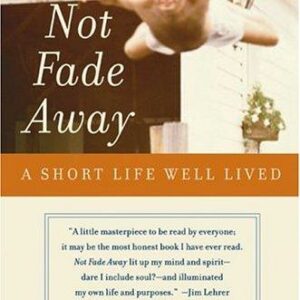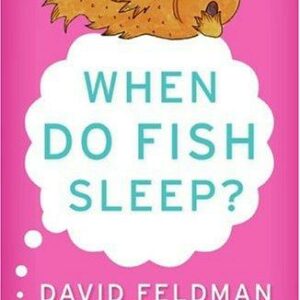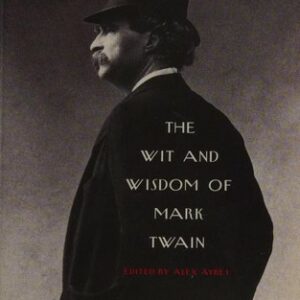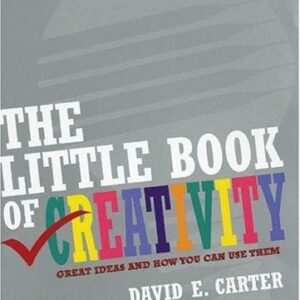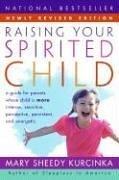The House on Tradd Street
$10.99
| Title | Range | Discount |
|---|---|---|
| Trade Discount | 5 + | 25% |
- Description
- Additional information
Description
The brilliant, chilling debut of Karen White’s New York Times bestselling Tradd Street series, featuring a Charleston real estate agent who loves old houses—and the secret histories inside them.
Practical Melanie Middleton hates to admit she can see ghosts. But she’s going to have to accept it. An old man she recently met has died, leaving her his historic Tradd Street home, complete with housekeeper, dog—and a family of ghosts anxious to tell her their secrets.
Enter Jack Trenholm, a gorgeous writer obsessed with unsolved mysteries. He has reason to believe that diamonds from the Confederate Treasury are hidden in the house. So he turns the charm on with Melanie, only to discover he’s the smitten one…
It turns out Jack’s search has caught the attention of a malevolent ghost. Now, Jack and Melanie must unravel a mystery of passion, heartbreak—and even murder.Praise for New York Times bestselling author Karen White
“There is a rhythm to the writing of Karen White. It has a pace, a beat, a cadence that is all its own.”— Jackie K. Cooper, The Huffington Post
“White’s dizzying carousel of a plot keeps those pages turning, so much so that the book can [be]—and should be—finished in one afternoon, interrupted only by a glass of sweet iced tea.”—Oprah.com
“White captures the true essence of Charleston by intertwining the sights and smells of the historic town with an enchanting story filled with ghostly spirits, love, and forgiveness…a once-in-a-lifetime series.”—Fresh Fiction
“This is storytelling of the highest order: the kind of book that leaves you both deeply satisfied and aching for more.”—Beatriz Williams, New York Times bestselling author of Tiny Little Thing
“Readers will find White’s prose an uplifting experience as she is a truly gifted storyteller.”—Las Vegas Review-JournalKaren White is the New York Times bestselling author of more than twenty novels, including the Tradd Street series, The Night the Lights Went Out, Flight Patterns, The Sound of Glass, A Long Time Gone, and The Time Between. She is the coauthor of The Forgotton Room with New York Times bestselling authors Beatriz Williams and Lauren Willig. She grew up in London but now lives with her husband and two children near Atlanta, Georgia.
CHAPTER
1
Pewter reflections of scarlet hibiscus colored the dirt-smudged windows of the old house, like happy memories of youth trapped inside the shell of an old man. The broken pediments over the windows gave the house a permanent frown, yet the leaf-filtered sun against the chipped Tower-of-the-Winds columns lining the side piazzas painted the house with hope. It was almost, I thought, as if the house were merely waiting for a miracle.
I studied the house, my Realtor’s mind trying to see past the wreckage. It was a characteristic Charleston single house, turned perpendicular to the street so that its short side abutted the sidewalk. The entry door, with an ornate cornice and Italianate filigree brackets, opened onto the garden-facing piazza, where I knew I would find the main entryway into the house. I wrinkled my nose, already smelling the inevitable decay I would encounter once I’d entered the house. Despite the enviable south of Broad location, any potential buyer for this property would have to be blind or incredibly stupid. In my vast experience at selling historic real estate in the city, I would bank on the latter.
The rhythmic pulse of rope against tree trunk punctuated the muggy Charleston morning air, catching my attention and drawing me to the peeling wrought iron fence to peer into the side garden. I wasn’t sure if it was curiosity that made me stop or just reluctance to continue. I hated old houses. Which was odd, really, since they were my specialty in the realty business. Then again, maybe not so odd, considering the origins of my dislike. Regardless, old houses gave me plenty of reasons to dislike them. For one thing, they smelled of lemon oil and beeswax mixed with mothballs. And always seemed to accompany the slow gait of an elderly person too old to keep up the house yet too stubborn to let it go. Like the owner had exhausted all hope of finding something in the future that would ever be as good as the past. Depressing, really. It was all just lumber and plaster in the end.
Seeing nothing, I pushed open the stubborn gate covered with climbing Confederate jasmine, the rusted hinges reluctantly giving up ground. I picked my way carefully over the cracked walkway of what must have once been a prized patterned garden, my high-heeled pumps avoiding cracks and tall weeds with prickers that would tear at my stockings and silk suit with little provocation.
A fall of shadow from the rear of the garden caught my attention. Ignoring the drops of perspiration running down the front of my blouse, I gingerly stepped across the weeds to get a better look.
An overgrown flower bed encircled a fountain where a cherub in the middle sat suspended in the perpetual motion of blowing nonexistent water from stone lips. Thick weeds as tall as my hips crept into the fountain, grasping at the cherub’s ankles. A gecko darted out from the chipped cement edging the fountain and ran along the side. Clutching my leather portfolio, I followed it to the back side of the statue, not completely sure why. Sweat trickled down my nape, and I raised a hand to wipe it away. My fingers felt icy against my skin, a sort of warning sign I had begun to recognize when I was still very small. I concentrated on ignoring the pinpricks that raced up my spine and made me listen to things I didn’t want to hear and that other people couldn’t.
I was eager to leave, but I stopped at the sight of a splash of red while my beautiful and expensive Italian leather heels sank into thick mulch. A small kidney-shaped area had been cleared of weeds and there, sprouting from fresh cedar clippings, grew four fat bushes containing the most vibrant red roses I had ever seen. They were like brightly dressed young girls sitting in the back pew of a crumbling church, and even their scent seemed out of place in the forlorn garden. I turned away, feeling an abiding sorrow that seemed to saturate the air in this part of the yard.
The heat that pressed down on me seemed to have a cold center to it, and I felt out of breath, as if I’d run a long distance. Jerkily, I stumbled to the shade under a live oak tree. I leaned against the tree trunk and looked up, searching for my breath in a garden that seemed to be soaking up air and even time itself. Spanish moss draped shawllike on the ancient limbs of the tree, its massive branches testifying to its years on this earth, its roots reaching out toward the house. The sound of the swing continued to reverberate throughout the overgrown garden, and when I turned my head, I again caught a movement of shadow from the corner of my eye. For a moment, I thought I could see a woman wearing an old-fashioned dress pushing an empty board swing suspended by rope from the oak tree. The image was hazy, the edges of it dim and fading.
The pinpricks invaded the back of my neck again, and I abruptly turned toward the piazza and marched across the garden, unconcerned now about my panty hose or anything else except getting my errand over with.
I crossed the marble-paved piazza, then pressed hard on the front doorbell and then again as I willed somebody to answer it quickly. It took forever before the slow, shuffling steps could be heard behind the closed door. I saw movement through the beveled-glass window in the door, etched in the pattern of climbing roses, the pattern deflecting light and color and separating the person on the other side of the door into a thousand fragments.
I sighed, knowing that it would take another five minutes for the old man to unlock all the dead bolts and another twenty for him to allow me to get to the point of our meeting just as surely as I knew that if I turned around to face the sound of the swing, I would see nothing at all.
The door swung open, and I took a surprised step backward as I found myself staring up into large brown eyes magnified by what looked like the bottoms of Coke bottles stuffed into wire eyeglass frames. The man had to be at least six foot three, even with the hunched shoulders beneath the starched white oxford cloth shirt and dark jacket, and he wore a linen handkerchief neatly tucked into the coat pocket.
I whipped out one of my business cards and held it out toward the old man. “Mr. Vanderhorst? I’m Melanie Middleton with Henderson House Realty. We spoke on the phone yesterday.” The man hadn’t made a move to take my card and was still staring at me through his thick glasses. “We made an appointment for today so that we might discuss your house.”
He acted as if he hadn’t heard me. “I saw you in the garden.”
He continued to stare and I rubbed my hands up and down my arms, feeling as if it were thirty degrees outside instead of ninety-eight. “I hope you don’t mind. I wanted to get a good look at the lot.”
I turned to face the garden as if to illustrate my point and realized that the sound of the swing had stopped the moment the door opened. The lot itself was large by historic district standards, and I couldn’t help but think of the wasted space the house was occupying and how much more useful it would be as a parking lot for the nearby shops and restaurants.
“Did you see her?”
His voice startled me. It was deep and very soft, as if it didn’t get much use, and he was unaware of how much breath he needed for each word.
“See who?”
“The lady pushing the swing.”
He had my full attention now. I looked into his magnified eyes. “No. There was nobody there. Were you expecting somebody?”
Instead of answering, he stepped back, opening the door farther, and made a courtly sweep of his hand. “Won’t you come in? Let’s sit in the drawing room and I’ll get us coffee.”
“Thank you, but that’s really not necessa…”
But he had already turned away from me and was shuffling through a keystone arch that separated the front hall from the stair hall. A faded yellow Chinese paper covered the walls, and I had the fleeting impression of elegant beauty before I looked closer and saw the buckling and the peeling and did a mental calculation of the cost of restoring hand-painted wallpaper.
I stepped through a pedimented doorway into the room Mr. Vanderhorst had indicated and found myself standing in a large front drawing room with tall ornamented ceilings capped with elaborate cornices circling the room. A dusty crystal chandelier dominated the room, its remaining crystals seemingly held in place by thick cobwebs. An intricate plaster medallion on the ceiling above the chandelier finalized my initial impression of the room as a wedding cake that had been left out in a warm room too long.
Smelling the old beeswax, I wrinkled my nose again, comparing my surroundings to my brand-new rented condo in nearby Mt. Pleasant complete with plain white walls, wall-to-wall carpeting, and central air. I would never understand people who felt privileged to pay a great deal of money to saddle themselves with a pile of termite-infested lumber like this, and then continued running themselves into bankruptcy from supporting the horrendous upkeep such an old house demanded. I shuddered, thankful that my own military-brat upbringing had never fostered any root-growing tendencies or warm and fuzzies toward ancient architecture.
I looked around the room, careful not to touch anything that would get dust on my hands and clothes. Sheets covered most of what looked like antique furniture except for a faded grospoint-covered Louis XV armchair and matching ottoman as well as an enormous mahogany grandfather clock. A small black-and-white dog lay curled on the ottoman and looked up with large brown eyes that strongly resembled those of my host. The thought made me smile until I spotted the huge crack in the plaster wall that snaked up from the baseboard to the cracked cornice in the corner of the room. My eyes drifted from the large water spot on the paint-chipped ceiling to the buckled wood floor underneath. I felt exhausted all of a sudden, as if I had somehow absorbed the age and decay of the room.
I moved to one of the floor-to-ceiling windows, hoping daylight might perk me up. Pushing aside a faded crimson damask drapery panel, and almost choking on the smell of stale dust, I paused, wondering if the small etchings I saw on the wall were actually hairline cracks in the plaster. I leaned forward and squinted, wishing I’d brought my glasses. A pale gray line stretched from the top of the baseboard to about four feet from the floor. Small markings bisected the line at approximately one-inch intervals, and tiny numbers were written in a delicate handwriting next to each demarcation. Squatting to see better, I realized I was looking at a growth chart, with the initials MBG written alongside the vertical line along with the age of MBG starting at one year. Tracing my finger along the line, I saw that it stopped at MBG’s eighth year.
“That was mine.”
The voice came from directly behind me, and I jumped, wondering how he had managed to move so quietly.
“But the initials…aren’t you Mr. Vanderhorst?”
His eyes focused on the pencil marks on the wall, and I noticed that an antique writing desk had been pulled away from the wall to expose the marks and now stood almost in the middle of the room. “MBG stands for ‘my best guy.’ My mother used to call me that.”
The soft tone of his voice reminded me of my own little-girl voice pretending to speak long distance on the phone to my absent mother. I looked away. A tray with delicate china teacups and a plate of pecan pralines had been laid on an uncovered side table. Moving toward it I spotted a large frame set on the table holding a sepia-toned portrait of a young boy sitting on a piano bench.
Again, Mr. Vanderhorst’s voice sounded right in my ear. “That was me when I was about four years old. My mother was an amateur photographer. She loved to take my picture.” He shuffled behind me and pulled off a dusty sheet from a delicate Sheridan armchair and indicated for me to sit.
I sat, placing my leather portfolio on the floor by my feet, then leaned forward to spoon four cubes of sugar and a splash of cream into my coffee, noticing the rose pattern on the teacups. I had expected the ubiquitous antique blue-and-white Canton china found in most of the houses in Charleston’s historic district. The roses on this set of china were bright red with large blooms of layered petals, nearly identical to the roses I’d seen in the neglected garden. I took a praline and placed it on a small rose-covered plate, then took another, aware of Mr. Vanderhorst watching me. Nervously, I sipped my coffee.
“Those are Louisa roses-my mama’s hybrid and named after her. She cultivated those, you see, in the garden. They were famous for a while-famous enough to have magazines coming from all over to photograph them.” His eyes fixed on me behind the thick glasses, studying me as if to gauge my reaction. “But now the only place in the world you can find them is right here in my garden.”
I nodded, eager to move on to the subject at hand.
“Are you a gardener, Miss Middleton?”
“Um, no, actually. I mean, I know what a rose is, and what a daisy looks like, but that pretty much covers all of my gardening terms.” I smiled tentatively.
Mr. Vanderhorst sat down across from me in a matching chair and picked up a teacup with slightly trembling hands. “This house had beautiful gardens when my mother lived here. Sadly, I haven’t been able to keep them up. I can just find enough energy to keep up the small rose garden by the fountain. That was my mama’s favorite.”
I nodded, remembering the odd little garden and the sound of a swing, then took another sip of coffee. “Mr. Vanderhorst, as I mentioned on the phone yesterday, I’m a Realtor, and my real estate company is very interested in obtaining the listing for your house.” I set my cup down and reached inside my portfolio to pull out the information on the property values in the neighborhood, as well as brochures that explained why my company was better than any of the other dozens of real estate companies in the area.
US
Additional information
| Weight | 8 oz |
|---|---|
| Dimensions | 1.0200 × 4.2100 × 6.6800 in |
| Series | |
| Imprint | |
| Format | |
| ISBN-13 | |
| ISBN-10 | |
| Author | |
| Audience | |
| BISAC | |
| Subjects | ghost story, disappearance, cozy mystery, murder mystery books, women sleuths, halloween books for adults, paranormal mystery, southern mysteries, beach books for women, southern fiction, popular books for women, Charleston, karen white books, karen white tradd street series, halloween romance, real estate agent, white house book, halloween books, Ghosts, south carolina, relationships, Halloween, romance, mystery, paranormal, supernatural, ghost, FIC022040, mysteries, FIC012000, haunted house, Family secrets, mystery books, mystery novels |


